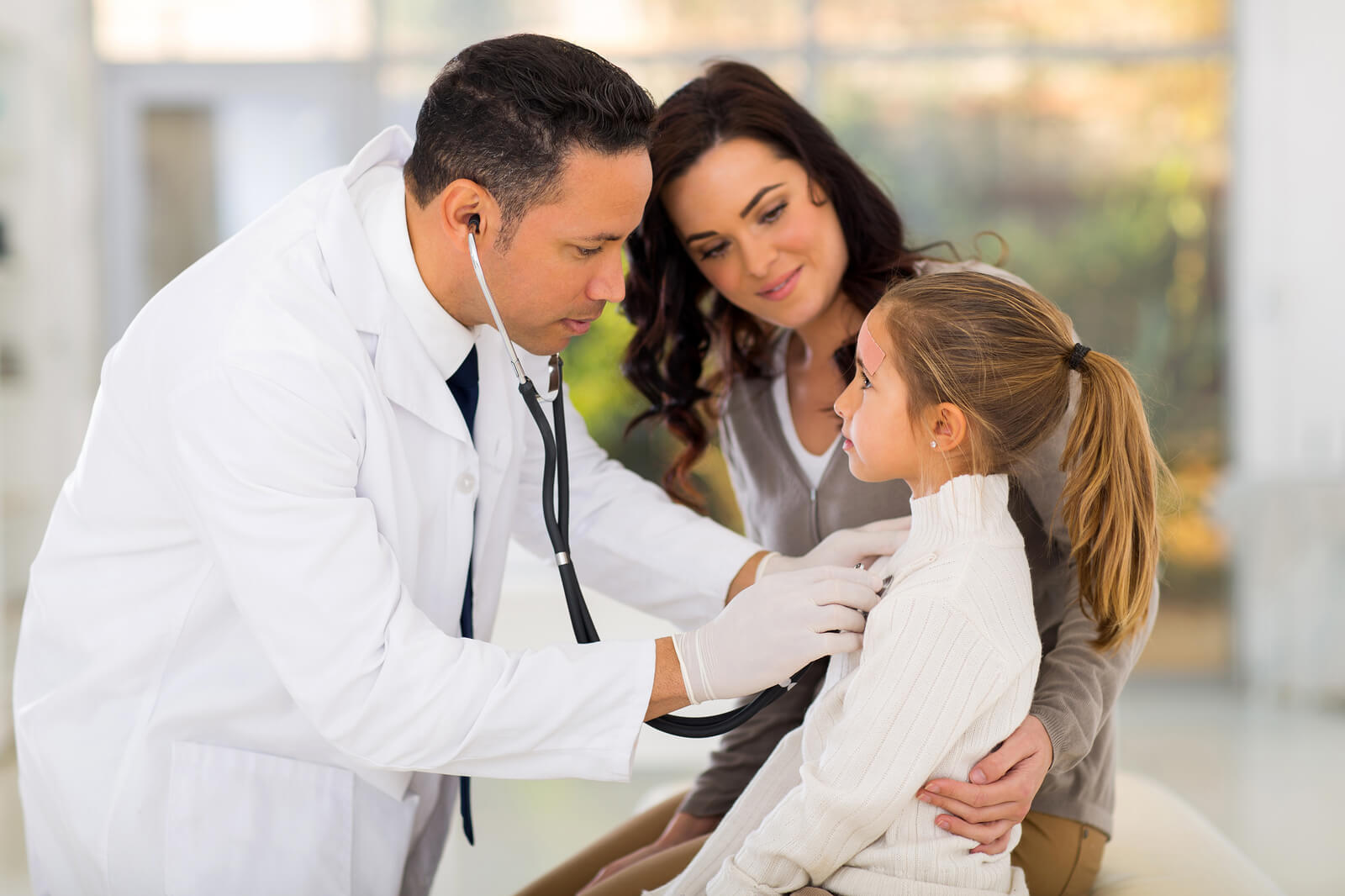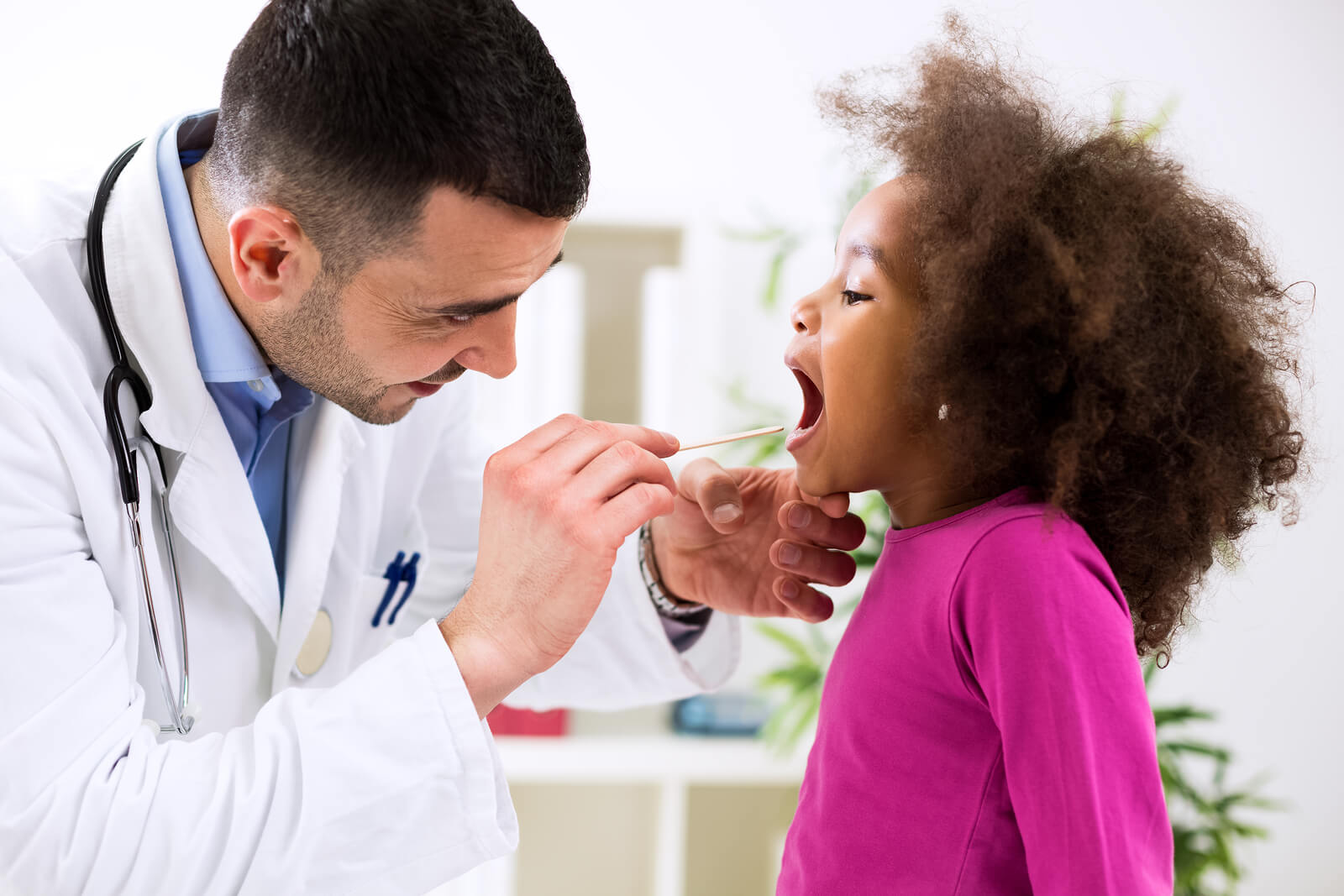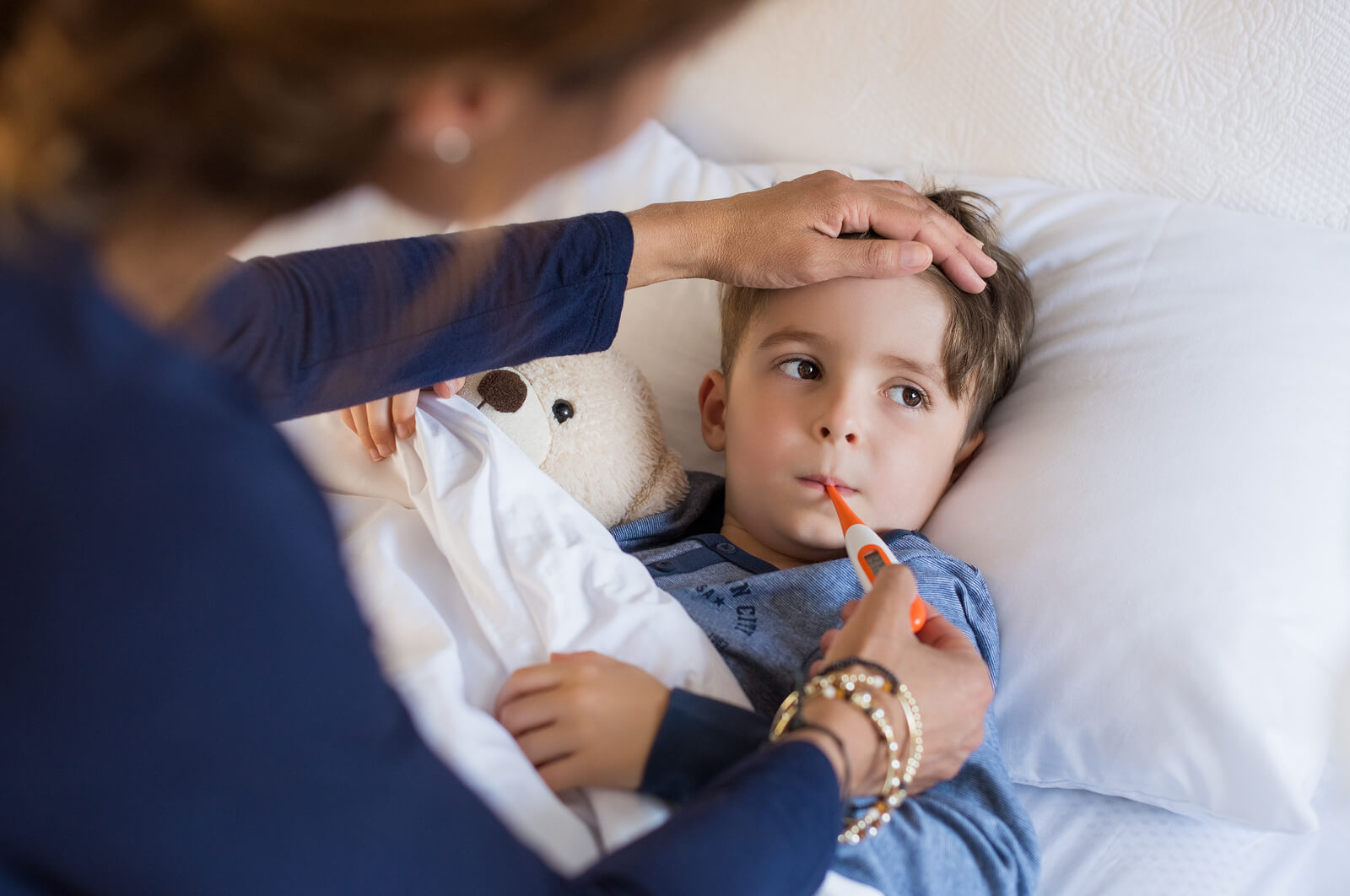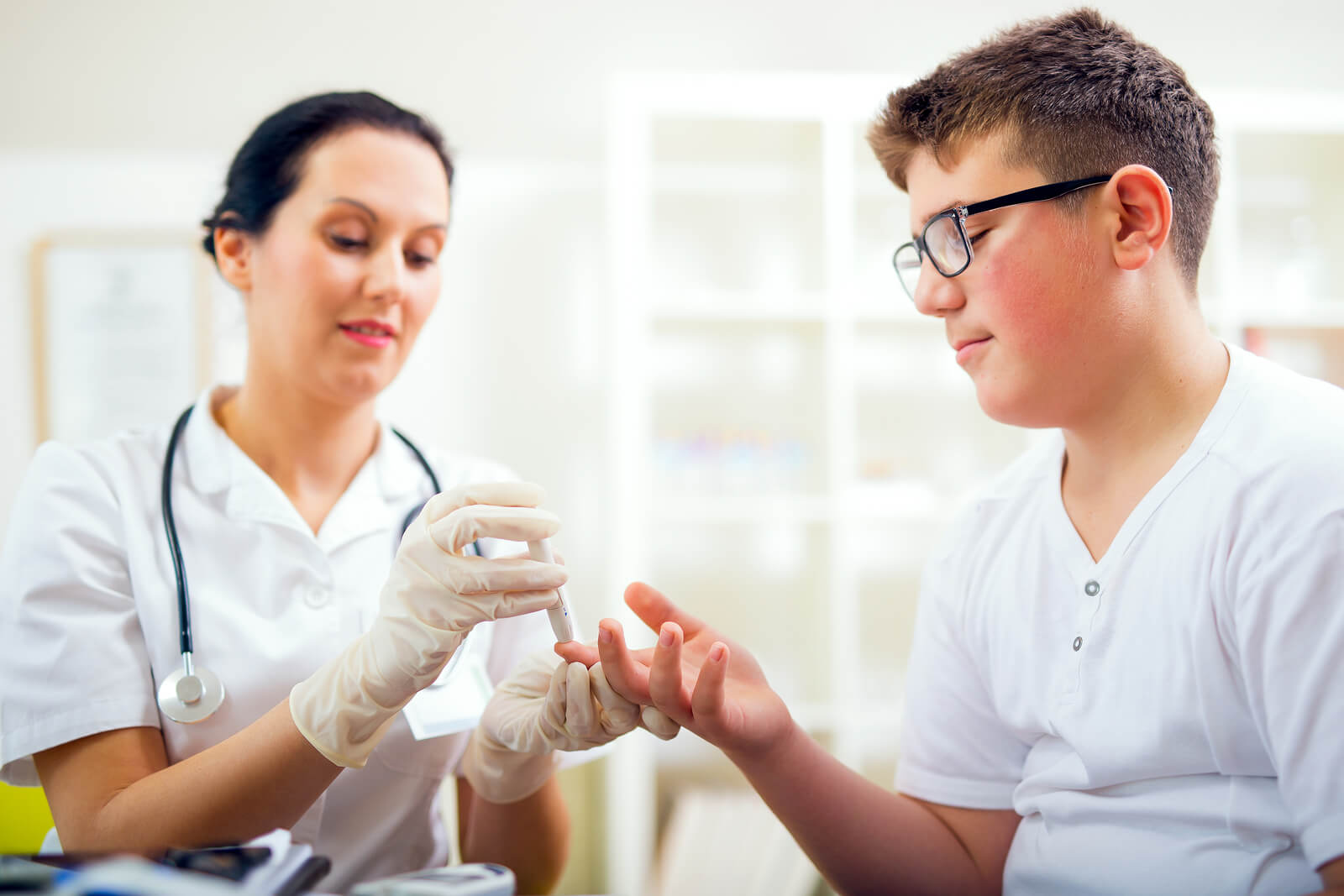Children's Health
Children take prescription drugs for a multitude of health reasons. But some of these drugs can trigger harmful complications that can lead to short- and long-term side effects. Learn about how to keep your child safe from potentially dangerous drugs.
About Children's Health
 Children under the age of 12 have the potential to develop an array of health conditions that can affect them both short- and long-term. Since their bodies and minds are still growing, medications are administered differently than they would be for older children and young adults. The dosage and frequency of a drug will vary based on a child’s age, weight, body type and medical history.
Children under the age of 12 have the potential to develop an array of health conditions that can affect them both short- and long-term. Since their bodies and minds are still growing, medications are administered differently than they would be for older children and young adults. The dosage and frequency of a drug will vary based on a child’s age, weight, body type and medical history.
Over the last decade, there has been a dramatic increase in the number of childhood chronic illnesses. Many of these, including obesity, mental health disorders and type 1 diabetes, are treatable health conditions. While medications are often used to help manage a child’s health, it is crucial to be aware of both common and rare side effects that can occur.
Regular follow-up appointments with your child’s physician will allow you to discuss any improvements or complications that may arise. Also keep in mind that as children age, a medical professional may recommend tapering off of some medications or taking a new type of drug. Before giving your child a new type of medicine, learn about the drug’s benefits and potential side effects. In doing so, you will have a better understanding of what to watch out for and when to seek medical attention.
How Drugs and Devices can Impact Children's Health
Prescription drugs keep the effects of various health conditions under control so that a child can live a better, pain-free life. However, taking too much of a medicine for too long can start to have adverse effects on children’s health. Some drugs also are more likely to cause potential dependency issues over time. Because of this, it’s important to work with a physician when coming off of a medication to reduce the risk of harmful consequences.
Children’s minds and bodies differ significantly when compared to a teen or even young adult. Drug manufacturer rules and regulations have recently tightened in an effort to keep children safer when taking prescription or over-the-counter drugs. Although there are still a number of medications that can trigger unwanted effects, U.S. health officials are implementing new safety measures to lower the dangers many children face when taking medicine.
Attention Deficit Hyperactivity Disorder (ADHD) Treatment
 Roughly 11 percent of children between the ages of four and 17 have been diagnosed with attention deficit hyperactivity disorder (ADHD). ADHD is a brain disorder that makes it challenging for individuals, especially children, to stay attentive for a duration of time and causes hyperactivity.
Roughly 11 percent of children between the ages of four and 17 have been diagnosed with attention deficit hyperactivity disorder (ADHD). ADHD is a brain disorder that makes it challenging for individuals, especially children, to stay attentive for a duration of time and causes hyperactivity.
To help ease the effects of ADHD, many physicians prescribe a medication such as Adderall, Ritalin, Methylin and Concerta. These drugs are short-acting stimulants, meaning that they only stay in the body briefly. Because of this, when a child stops taking the medication, the benefits and side effects will disappear.
Over the years, ADHD medications have come under fire for their adverse effects. Common side effects, such as nervousness, appetite suppression and insomnia, are said to be short-lasting. The rare, but dangerous side effects of ADHD drugs primarily include blood pressure problems and heart complications. Children who are misdiagnosed with ADHD and take the medication are also at risk of developing behavioral problems.
As children mature, their ADHD symptoms may begin to fade. A child’s doctor should re-evaluate their prognosis to see if the medication is still necessary. Since long-term use of ADHD medications can increase the chances of harmful side effects, it’s best to stop taking them with the help of a medical professional.
Antidepressants
 Childhood depression is more than just a case of the blues. It involves persistent feelings of sadness, mood swings, low self-esteem and difficulty sleeping. You may notice your child lose interest in activities and friendships they once loved, and become isolated.
Childhood depression is more than just a case of the blues. It involves persistent feelings of sadness, mood swings, low self-esteem and difficulty sleeping. You may notice your child lose interest in activities and friendships they once loved, and become isolated.
To help alleviate the signs of depression, a mental health professional or physician may prescribe an antidepressant such as Prozac, Zoloft, Paxil and Lexapro. Within the first several weeks of taking an antidepressant, children may experience loss of appetite, trouble sleeping, drowsiness, irritability and headache. Although rare, some medications can lead to severe side effects like seizures, fast heart rate and trouble breathing. Antidepressants also carry a black box warning – the FDA’s strictest label – about the risk of suicidal thoughts in children and young adults under the age of 25.
Children on antidepressants must be frequently monitored by a physician. Parents or loved ones should get help immediately if their child experiences adverse side effects from taking the drug or they see a change in the child’s behavior. Antidepressants should only be administered to children as directed by a medical professional. Taking too much or skipping doses can cause serious complications to the child’s emotional and physical well-being.
Cold and Allergy Relief

When a child comes down with a cold or congestion, they are often given an over-the-counter medicine to help relieve the symptoms. While some drugs are safe for children to use, others should not be administered to adolescents under a certain age. It is recommended that you speak with a pediatrician or family doctor before giving cold or allergy medicines to children younger than six.
Over-the-counter medicines typically include Robitussin, Benadryl, PediaCare and Dimetapp. Instructions regarding proper dose amounts and warnings can be found on the label. Every medicine is different and can change its ingredients over time, so it’s important to read through all of the instructions before giving a medication to your child. Even prescription medications may lead to negative and sometimes dangerous side effects. For example, Promethazine (commonly sold as Phenergan or a generic brand) has been issued a black box warning by the FDA because of its potentially dangerous effects.
Minor side effects of cold and allergy medications are dizziness, drowsiness and upset stomach. However, seek medical care if these symptoms persist or worsen. More severe side effects of cold and allergy medicines include allergic reactions, irregular heartbeat, difficulty urinating, blurred vision, tremors or unusual weakness.
If your child is showing signs of multiple ailments, refrain from the use of multi-symptom medications. These are sometimes made up of a pain reliever and fever reducer, or a cough suppressant and sore throat remedy. The ingredients in multi-symptom remedies are commonly very strong, causing over-medication in a child.
Nonsteroidal Anti-Inflammatory Drugs (NSAIDs)
 Another type of over-the-counter medication used to treat children are nonsteroidal anti-inflammatory drugs (NSAIDs). These are usually administered to reduce mild pain caused by a headache, tooth ache, ear infection or muscle soreness. Sometimes NSAIDs can also be used in treating a high fever.
Another type of over-the-counter medication used to treat children are nonsteroidal anti-inflammatory drugs (NSAIDs). These are usually administered to reduce mild pain caused by a headache, tooth ache, ear infection or muscle soreness. Sometimes NSAIDs can also be used in treating a high fever.
Different forms of NSAIDs include ibuprofen and Tylenol. Although aspirin is an NSAID used by many adults, it is not recommended for adolescents under the age of 16. Even though NSAIDs can be purchased from a pharmacy without a doctor’s prescription, they can still cause serious harm if used incorrectly. For instance, if you administer too much or combine medications, your child may experience any number of health complications. Some side effects are normal and go away within a matter of hours such as stomach pain, headache, nausea and loss of appetite. However, side effects that require immediate medical attention include skin rash, bloody urine, unusual bleeding or bruising, and yellowing of the eyes or skin.
NSAIDs are not intended for long-term use. If your child’s condition worsens or does not get better within a few days, you should make an appointment with their physician to get it checked out.
Type 1 Diabetes Medications
 Type 1 diabetes is normally diagnosed in children and young adults. Medication and proper diet are used to help manage this condition so patients can live a normal life. Treatment may also include blood sugar monitoring and injections to make sure your child’s insulin levels are kept in check. Check with your child’s physician or diabetes educator about the best treatment plan for their health.
Type 1 diabetes is normally diagnosed in children and young adults. Medication and proper diet are used to help manage this condition so patients can live a normal life. Treatment may also include blood sugar monitoring and injections to make sure your child’s insulin levels are kept in check. Check with your child’s physician or diabetes educator about the best treatment plan for their health.
There are different types of medications that can help better control type 1 diabetes in children. Type 1 diabetes drugs may include pramlintide, high blood pressure medications and cholesterol-lowering drugs. While these are very effective in helping to treat type 1 diabetes, they can also come with various risk factors. For example, pramlintide’s minor side effects are nausea, tiredness and stomach pain. Though uncommon, dangerous side effects include blurred vision, seizures, puffiness around face, slurred speech and difficulty swallowing.
To avoid the dangerous health complications associated with type 1 diabetes, stay on top of your child’s treatment plan. Schedule regular follow-up doctor appointments and discuss any changes you may have noticed. Depending on your child’s reaction to the medicine, their physician may lower the dosage or prescribe a new drug.
Talcum Powder
Talcum powder, also known as baby powder, is often used to treat or prevent rashes in infants and young children. While this product can help to soothe and cool irritated skin, baby powder that contains talcum can actually put your child’s health at risk. If inhaled, this cosmetic can lead to talcum powder poisoning or cause respiratory problems in infants and young children. Symptoms of talcum powder poisoning can include:
- Coughing
- Throat irritation
- Eye irritation
- Decreased urination
- Diarrhea
- Blistered and/or blue skin
Exercise caution if you are using talcum-based baby powders around children. If you use a baby powder product that contains talcum, consider switching to a talc-free alternative.
Get the Help you Deserve
The harmful side effects of some drugs can impact children for many years. If your child has been negatively affected by a drug, we can help you. Schedule a free legal consultation to discuss your case and get the answers you need.
Last Edited: March 22, 2017
